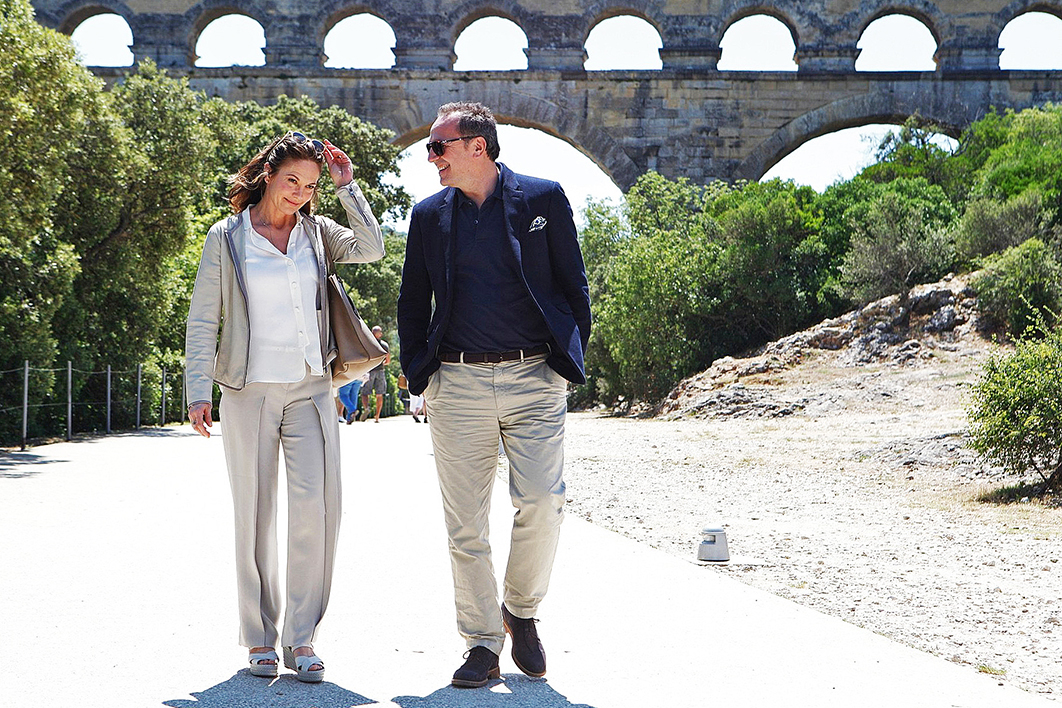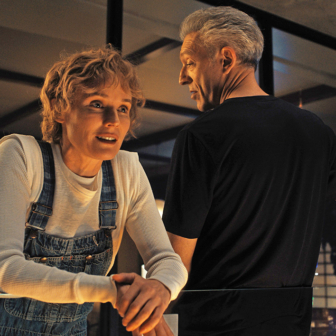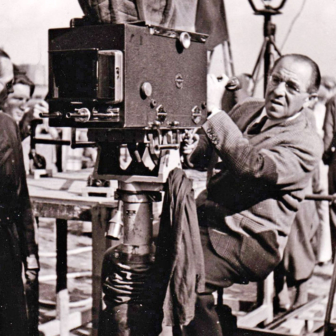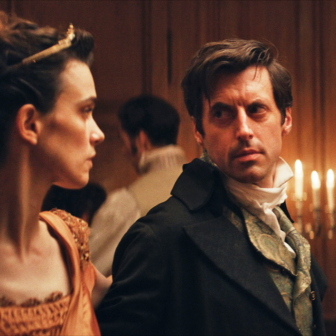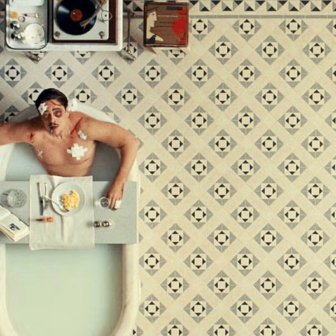The point of the very witty title of this piece is that, by chance, I saw two films within the space of a week that might qualify as road movies, and in both cases we’re talking French roads. In each of them, the relationship between two people develops as they make their often-culinary way through the French countryside.
The word “their” in the title of The Time of Their Lives denotes the pair incarnated by Joan Collins and (no relation) Pauline Collins. It’s amazing to think the former has been decorating screens large and small for over sixty-five years, recalling that decades-old comment of Oscar Levant’s: “I knew Joan Collins when she was older than she is today.” Now, at eighty-four, she turns up as a film star — what else? — who is afraid she is losing her public and determined to mine any opportunity for publicity. Pauline Collins, best known as the lead in Shirley Valentine (1989), though she has done plenty of other impressive work, is a mere girl of seventy-six, and here plays a repressed housewife.
In director-screenwriter Roger Goldby’s film, they are each given plenty of scope to shine in their contrasting ways. These ways are introduced with contrasting images: Joan Collins’s Helen, in a “care” centre, is first glimpsed via a close-up of her bejewelled fingers, which proceed to fix her hair (or, rather, her wig, as we’ll learn); Pauline Collins’s housewife, Priscilla, is first seen swimming in long shot, then preparing toast and eggs for her dour husband, who bullies her psychologically as she talks of their dead child.
The film first brings them together at a supermarket checkout, then has Priscilla trapped on an old persons’ bus outing after helping Helen, whose glamour is supported by walking sticks. Both are under significant strain. Helen knows her once-glittering stardom is a thing of the past, and her intense egoism finds it hard to cope with being unrecognised. Priscilla lives under the shadow of her long-dead son, who drowned when she was distracted for a moment.
Helen wants to go to the funeral of a long-ago lover in France and urges Priscilla to go with her. At least part of her motivation is that Helen is strapped for cash and will expect Priscilla to pay. She’s sure the funeral will be “like the Academy Awards,” attended by influential people who will be able to reactivate her career. “Act old,” Helen instructs Priscilla, hoping to ensure preferential treatment.
A good deal of this, and of what follows, is amusing, wittily written and acted with a sharp sense of complementarity by the stars. While they are waiting at the ferry landing in France, Priscilla leaps into the water to save a small child who has fallen in. And so, when they are met by the press, to Helen’s chagrin it is Priscilla the reporters are interested in on account of this heroic rescue. They’ve never heard of Helen. Another blow to Helen’s formidable self-esteem occurs when Alberto (Franco Nero), a famous artist whose path they cross when they run out of petrol in the countryside at night, takes them to a hotel and chooses to escort Priscilla up to her room.
What gives the film some substance, so that it emerges as a little more than just a comic road movie, is the underlying pathos in the case of each woman. Egomaniacal as Helen may seem, there is a certain poignancy in how she deals with life when what made her important has filtered away. The press’s and Alberto’s greater interest in Priscilla can only accentuate this sense of what she has lost. Also, somewhere in Helen’s distant past is a child for whom she could find no place in her life then, and this of course echoes in Priscilla’s loss. This doesn’t mean the film is sombre; it certainly isn’t, but all good comedy is serious at heart. The pair eventually fetch up at the funeral that has been Helen’s goal and at which she will attempt to play a prominent role. The narrative is complicated by her meeting with the dead man’s daughter, and by Alberto’s heart attack, perhaps the result of over-estimating his bedroom stamina. Each of the women will have to come to terms with various kinds of loss and revelation, and the journey towards the ending involves enough self-searching by each to make the resolution satisfying.
I’m trying to be cautious about revealing just enough to suggest there is more to the film than a series of comically contrived incidents, but not enough to spoil the potential viewer’s gratification. This is by no means a masterwork but it is shrewdly written and smartly paced by Goldby, in his first major feature — and it is good to see that two mature actresses can carry a film without surrendering their maturity.
This review was intended to be about that one film, but Paris Can Wait had just enough in common to bring them together. They both involve journeys through France, and the rendering of the countryside in each is a matter of delight to the viewer. They each posit two people making the journey, one of whom, at least initially, isn’t committed to its purpose, and they each take in a good deal of enviable eating and drinking along the way. While the protagonists of Paris Can Wait can’t rival the other pair in longevity, the director is right up there with Joan Collins. She is Eleanor Coppola, wife of Francis, and at eighty-one years old this is her first film. Also the author of the screenplay, she brings to the film’s road movie/semi-romance scenario a graceful fluidity in its narrative mode, without feeling any need to push the action to obvious climaxes, and the tonal effect is one of pleasing reflectiveness.
What, we wonder, is the state of the marriage of Anne (Diane Lane) and Michael (Alec Baldwin)? Michael, a film producer, is heading off to Budapest from Cannes, and Anne, not altogether happily, accepts the lift back to Paris that he organises for her with a business associate, Jacques (Arnaud Viard). She wants to get to Paris by the most direct route but Jacques has culinary — and other — diversions in mind. Will these days on the road lead to a passionate affair? Not really, but Coppola maintains an enjoyable frisson of possibilities and the film develops an engaging rhythm that meshes well with — or, rather, in part creates — the element of uncertainty at its core. And Lane and Viard play as if they know exactly how much flirtation they can get away with while maintaining a likeable credibility.
Neither of these films will win awards; neither is likely to make great intellectual demands on the viewer; but at each you can anticipate an enjoyably relaxing time without feeling you’ve wasted a couple of hours. •
